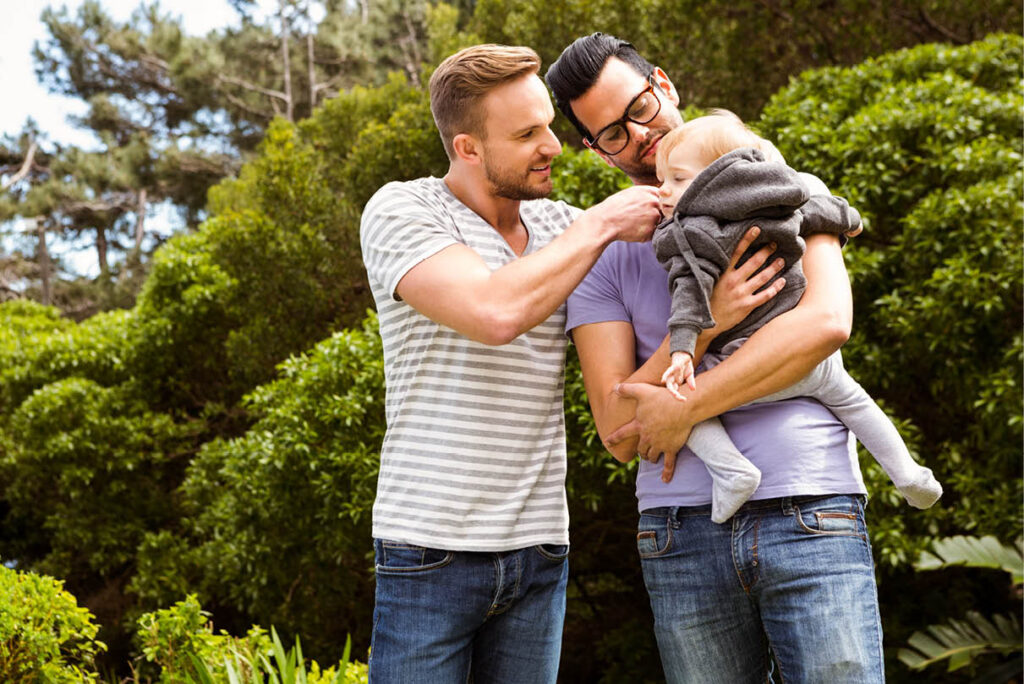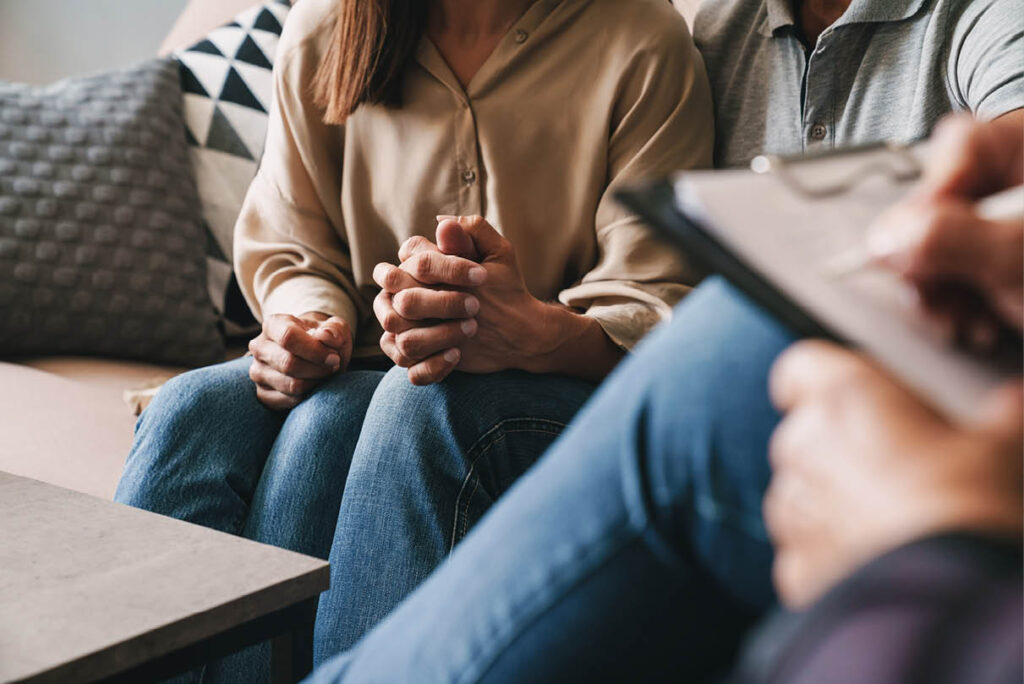Scientists have proven that the quality of our adult relationships, just like the relationship we had with our carers as children, is related to our survival instincts.
There is now a large body of evidence that secure and loving couple relationships keep us physically, mentally and emotionally healthy. When we feel close, or “strongly attached” to our partner, we are self-confident and empowered. We feel calmer, less stressed, and better at receiving and giving support.


When our loving relationship doesn’t feel safe or secure or nourishing, we don’t function properly. At our core, we worry for our survival. As Sue Johnson, the founder of emotionally focused therapy for couples, says:
“Love is not the icing on the cake of life. It is a basic primary need, like oxygen or water. Once we understand and accept this, we can more easily get to the heart of relationship problems.”
When feelings of distance creep in between us and our partner, we experience “primal panic”. We try to soothe ourselves in ways that we are rarely conscious of and that are rarely helpful for our relationship. Read more about this at What Has Gone Wrong and Why? page.
When we start to feel either distanced or smothered, we start reacting to each other in ways that make the distance between us grow bigger.
And when we feel a distance creep into our love relationship, or we feel unsupported, or uncared for, or worse, where our trust has been shattered, we suffer. We are more stressed, more anxious, depressed and angry.
Unfortunately, our physical health also suffers if our relationship is struggling. Evidence-based science now shows us that people in better relationships have lower blood pressure, less heart disease and stronger immune systems.
When our relationships are struggling, our careers often suffer. Our children often suffer. We are simply not able to focus on being great parents or employees or business owners when our attachment to our partner is threatened, in whatever way.
Keeping your marriage or relationship positive, loving and on track is undoubtedly one of the most important things you can do for your wellbeing.
A century ago—or even just 50 or 30 years ago—our expectations of relationships were entirely different. A spouse was seen as a provider, a partner in parenting our children, someone to care for ageing parents, or to help run a household or business. We didn’t expect them to be responsible for our happiness.
We lived in large extended families and close-knit communities, where happiness came from many sources—or we simply didn’t expect to be happy at all. Much of our daily energy was spent just surviving. Perhaps traditional gender roles dictated what happiness should look like for men and women, and today, those roles no longer satisfy us.


For these reasons—or many others—our expectations of relationships have shifted.
Studies show that “emotional security” is now the most significant expectation we have of our relationships or marriages.
But here’s the challenge: most of us haven’t been taught the skills or knowledge needed to meet someone else’s emotional needs—or to help them meet ours and make us feel secure.
So, where do we turn for guidance? For most of us, our only real relationship role models are the ones we observed growing up—our parents—or the unrealistic portrayals we see in popular culture and, at worst, in Hollywood movies. These essential life skills aren’t something we’re taught in schools.
In a nutshell, our social landscape has changed, and the bar has been raised incredibly high. We all expect much, much more from our partners than we ever did before.
At You, Me & Us, we see good quality relationship counselling as one of the few pathways currently available to really make a much-needed positive difference for couples.

Relationship counselling isn’t cheap, and it’s not covered by Medicare (though we believe it should be—please join the campaign!). However, it’s a genuine investment in your future.
It might seem like a saving to avoid spending money on relationship counselling when you wish you could fix things yourselves. But, when compared to the alternative of separation, divorce, and the costs associated with family court, it’s a far more cost-effective choice. Legal disputes can quickly rack up tens of thousands of dollars, only to leave you facing the challenges of a single-income lifestyle.
We understand—it’s hard to justify spending money on something that doesn’t feel completely broken, especially when relationship breakdowns often happen unexpectedly.


There’s also the effort involved. Finding over an hour each week to focus on your relationship amid busy work and family schedules can be challenging.
We liken it to the rise in prioritising physical health and fitness. A few decades ago, not everyone made time for exercise, but now we all recognise the importance of staying active for our well-being and longevity.
We believe that, in the future, relationship counselling will be seen as equally essential. It will be widely accepted that seeking professional help is key to preventing a relationship from becoming just another divorce statistic, or worse, a sentence to lifelong unhappiness.
Good-quality relationship counselling is an investment that can help you feel happier, more loved, and more connected—it goes to the very core of what life is all about.
OUR PRACTITIONERS’ AFFLIATED ORGANISATION